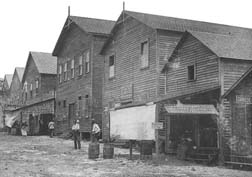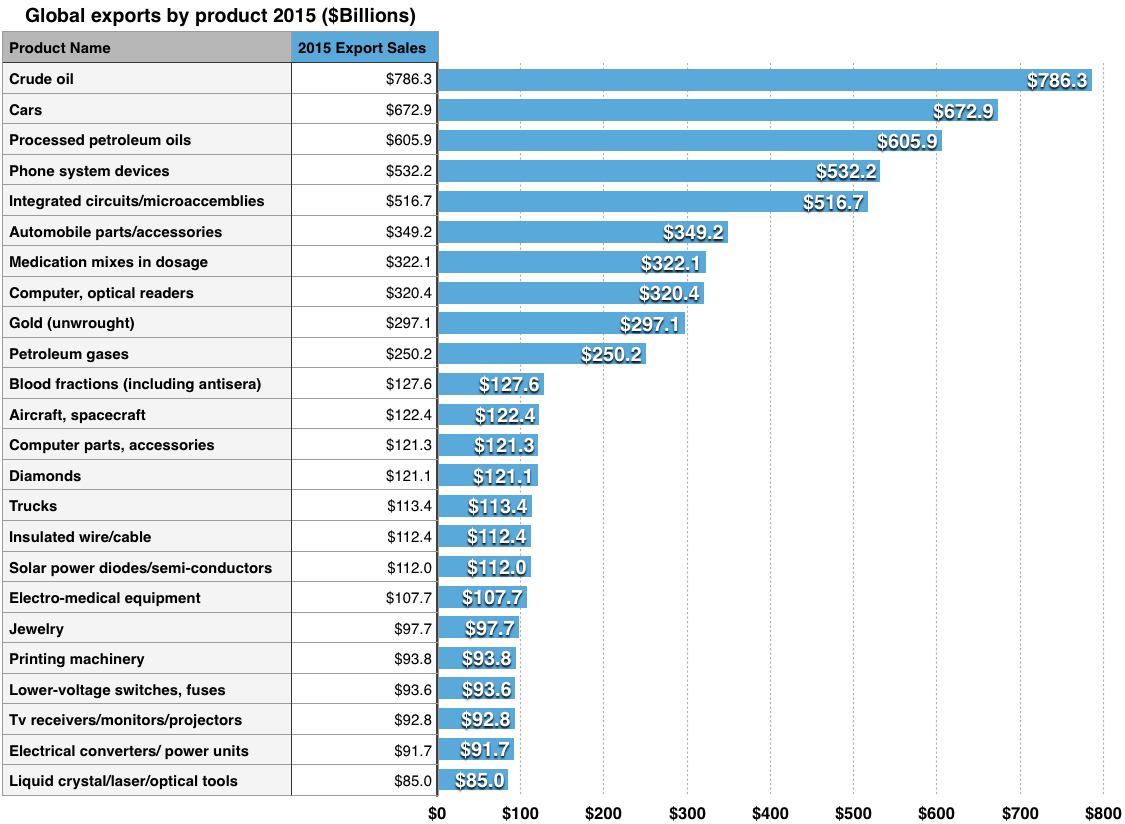|
Free On Board
FOB (free on board) is a term in international commercial law specifying at what point respective obligations, costs, and risk involved in the delivery of goods shift from the seller to the buyer under the Incoterms standard published by the International Chamber of Commerce. FOB is only used in non-containerized sea freight or inland waterway transport. As with all Incoterms, FOB does not define the point at which ownership of the goods is transferred. The term FOB is also used in modern domestic shipping within North America to describe the point at which a seller is no longer responsible for shipping costs. Ownership of a cargo is independent of Incoterms, which relate to delivery and risk. In international trade, ownership of the cargo is defined by the contract of sale and the bill of lading or waybill. Historical usage The term "free on board", or "f.o.b." was used historically in relation to the transfer of risk from seller to buyer as goods are shipped. There appears to ... [...More Info...] [...Related Items...] OR: [Wikipedia] [Google] [Baidu] |
Stevedore
A dockworker (also called a longshoreman, stevedore, docker, wharfman, lumper or wharfie) is a waterfront manual laborer who loads and unloads ships. As a result of the intermodal shipping container revolution, the required number of dockworkers has declined by over 90% since the 1960s. Etymology The word ''stevedore'' () originated in Portugal or Spain, and entered the English language through its use by sailors. It started as a phonetic spelling of ''estivador'' ( Portuguese) or ''estibador'' ( Spanish), meaning ''a man who loads ships and stows cargo'', which was the original meaning of ''stevedore'' (though there is a secondary meaning of "a man who stuffs" in Spanish); compare Latin ''stīpāre'' meaning ''to stuff'', as in ''to fill with stuffing''. In Ancient and Modern Greek, the verb στοιβάζω (stivazo) means pile up. In Great Britain and Ireland, people who load and unload ships are usually called ''dockers''; in Australia, they are called ''stevedores'', ''d ... [...More Info...] [...Related Items...] OR: [Wikipedia] [Google] [Baidu] |
Carriage Paid To
The Incoterms or International Commercial Terms are a series of pre-defined commercial terms published by the International Chamber of Commerce (ICC) relating to international commercial law. Incoterms define the responsibilities of exporters and importers in the arrangement of shipments and the transfer of liability involved at various stages of the transaction. They are widely used in international commercial transactions or procurement processes and their use is encouraged by trade councils, courts and international lawyers. A series of three-letter trade terms related to common contractual sales practices, the Incoterms rules are intended primarily to clearly communicate the tasks, costs, and risks associated with the global or international transportation and delivery of goods. Incoterms inform sales contracts defining respective obligations, costs, and risks involved in the delivery of goods from the seller to the buyer, but they do not themselves conclude a contract, determ ... [...More Info...] [...Related Items...] OR: [Wikipedia] [Google] [Baidu] |
International Trade
International trade is the exchange of capital, goods, and services across international borders or territories because there is a need or want of goods or services. (See: World economy.) In most countries, such trade represents a significant share of gross domestic product (GDP). While international trade has existed throughout history (for example Uttarapatha, Silk Road, Amber Road, salt roads), its economic, social, and political importance has been on the rise in recent centuries. Carrying out trade at an international level is a complex process when compared to domestic trade. When trade takes place between two or more states, factors like currency, government policies, economy, judicial system, laws, and markets influence trade. To ease and justify the process of trade between countries of different economic standing in the modern era, some international economic organizations were formed, such as the World Trade Organization. These organizations work towards the ... [...More Info...] [...Related Items...] OR: [Wikipedia] [Google] [Baidu] |
Chicago
Chicago is the List of municipalities in Illinois, most populous city in the U.S. state of Illinois and in the Midwestern United States. With a population of 2,746,388, as of the 2020 United States census, 2020 census, it is the List of United States cities by population, third-most populous city in the United States after New York City and Los Angeles. As the county seat, seat of Cook County, Illinois, Cook County, the List of the most populous counties in the United States, second-most populous county in the U.S., Chicago is the center of the Chicago metropolitan area, often colloquially called "Chicagoland" and home to 9.6 million residents. Located on the shore of Lake Michigan, Chicago was incorporated as a city in 1837 near a Chicago Portage, portage between the Great Lakes and the Mississippi River, Mississippi River watershed. It grew rapidly in the mid-19th century. In 1871, the Great Chicago Fire destroyed several square miles and left more than 100,000 homeless, but ... [...More Info...] [...Related Items...] OR: [Wikipedia] [Google] [Baidu] |
Miami
Miami is a East Coast of the United States, coastal city in the U.S. state of Florida and the county seat of Miami-Dade County, Florida, Miami-Dade County in South Florida. It is the core of the Miami metropolitan area, which, with a population of 6.14 million, is the second-largest metropolitan area in the Southeastern United States, Southeast after Atlanta metropolitan area, Atlanta, and the Metropolitan statistical area#United States, ninth-largest in the United States. With a population of 442,241 as of the 2020 United States census, 2020 census, Miami is the List of municipalities in Florida, second-most populous city in Florida, after Jacksonville, Florida, Jacksonville. Miami has the List of tallest buildings in the United States#Cities with the most skyscrapers, third-largest skyline in the U.S. with over List of tallest buildings in Miami, 300 high-rises, 70 of which exceed . Miami is a major center and leader in finance, commerce, culture, arts, and internation ... [...More Info...] [...Related Items...] OR: [Wikipedia] [Google] [Baidu] |
Risk Of Loss
Risk of loss is a term used in the law of contracts to determine which party should bear the burden of risk for damage occurring to goods after the sale has been completed, but before delivery has occurred. Such considerations generally come into play after the contract is formed but before buyer receives goods, something bad happens. Under the Uniform Commercial Code (UCC), there are four risk of loss rules, in order of application: # Agreement - the agreement of the parties controls # Breach - the breaching party is liable for any uninsured loss even though breach is unrelated to the problem. Hence, if the breach is the time of delivery, ''and'' the goods show up broken, then the breaching rule applies risk of loss on the seller. # Delivery by common carrier other than by seller. ##Risk of loss shifts from seller to buyer at the time that seller completes its delivery obligations ##If it is a destination contract ( FOB (buyer's city)), then risk of loss is on the seller. ##If it ... [...More Info...] [...Related Items...] OR: [Wikipedia] [Google] [Baidu] |
Legal Liability
In law, liable means "responsible or answerable in law; legally obligated". Legal liability concerns both Civil law (common law), civil law and criminal law and can arise from various areas of law, such as contracts, torts, taxes, or fines given by Administrative law, government agencies. The Plaintiff, claimant is the one who seeks to establish, or prove, liability. Liability in business In commercial law, limited liability is a method of protection included in some business formations that shields its owners from certain types of liability and that amount a given owner will be liable for. A limited liability form separates the owner(s) from the business. The limited liability form essentially acts as a corporate veil that protects owners from liabilities of the business. This means that when a business is found liable in a case, the owners are not themselves liable; rather, the business is. Thus, only the funds or property the owner(s) have invested into the business are subje ... [...More Info...] [...Related Items...] OR: [Wikipedia] [Google] [Baidu] |
Domestic Trade
A domestic market, also referred to as an internal market or domestic trading, is the supply and demand of goods, services, and securities within a single country. In domestic trading, a firm faces only one set of competitive, economic, and market issues and essentially must deal with only one set of customers, although the company may have several segments in a market. The term is also used to refer to the customers of a single business who live in the country where the business operates. There are certain limitations when competing in a domestic market, many of which encourage firms to expand abroad. The main reasons why a business would decide to expand abroad are limited market size and limited growth within the domestic market. South Korea The Korean domestic market or Korean domestic motors (KDM) is the name for South Korea's economic market for domestic-brand goods, chiefly automobiles and parts. South Korea's main export markets are the United States and Canada ... [...More Info...] [...Related Items...] OR: [Wikipedia] [Google] [Baidu] |
International Trade
International trade is the exchange of capital, goods, and services across international borders or territories because there is a need or want of goods or services. (See: World economy.) In most countries, such trade represents a significant share of gross domestic product (GDP). While international trade has existed throughout history (for example Uttarapatha, Silk Road, Amber Road, salt roads), its economic, social, and political importance has been on the rise in recent centuries. Carrying out trade at an international level is a complex process when compared to domestic trade. When trade takes place between two or more states, factors like currency, government policies, economy, judicial system, laws, and markets influence trade. To ease and justify the process of trade between countries of different economic standing in the modern era, some international economic organizations were formed, such as the World Trade Organization. These organizations work towards the ... [...More Info...] [...Related Items...] OR: [Wikipedia] [Google] [Baidu] |
Free Carrier
The Incoterms or International Commercial Terms are a series of pre-defined commercial terms published by the International Chamber of Commerce (ICC) relating to international commercial law. Incoterms define the responsibilities of exporters and importers in the arrangement of shipments and the transfer of liability involved at various stages of the transaction. They are widely used in international commercial transactions or procurement processes and their use is encouraged by trade councils, courts and international lawyers. A series of three-letter trade terms related to common contractual sales practices, the Incoterms rules are intended primarily to clearly communicate the tasks, costs, and risks associated with the global or international transportation and delivery of goods. Incoterms inform sales contracts defining respective obligations, costs, and risks involved in the delivery of goods from the seller to the buyer, but they do not themselves conclude a contract, determ ... [...More Info...] [...Related Items...] OR: [Wikipedia] [Google] [Baidu] |
Containerization
Containerization is a system of intermodal freight transport using intermodal containers (also called shipping containers, or International Organization for Standardization, ISO containers). Containerization, also referred as container stuffing or container loading, is the process of unitization of cargoes in exports. Containerization is the predominant form of unitization of export cargoes today, as opposed to other systems such as the barge system or palletization. The containers have Standardization, standardized dimensions. They can be loaded and unloaded, stacked, transported efficiently over long distances, and transferred from one mode of transport to another—container ships, rail transport flatcars, and semi-trailer trucks—without being opened. The handling system is mechanized so that all handling is done with cranes and special forklift trucks. All containers are numbered and tracked using computerized systems. Containerization originated several centuries ago ... [...More Info...] [...Related Items...] OR: [Wikipedia] [Google] [Baidu] |





